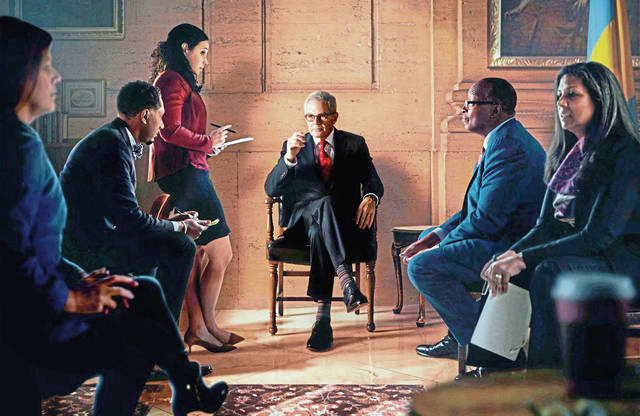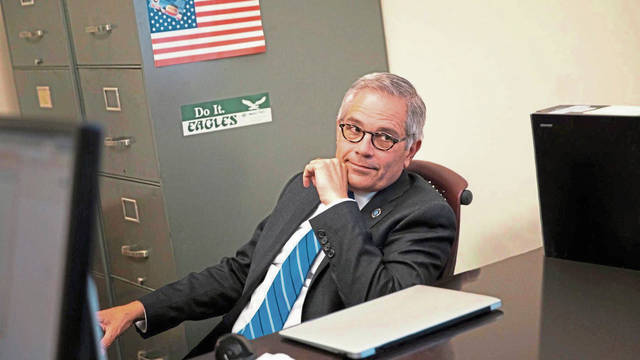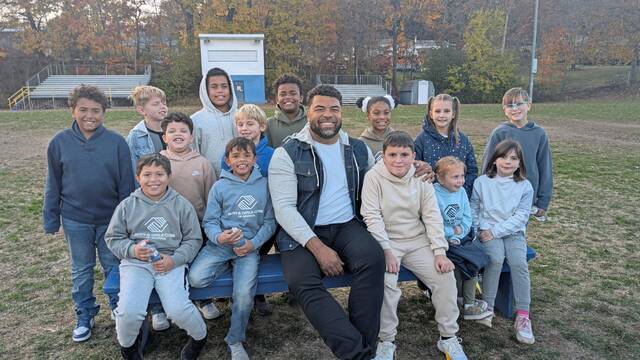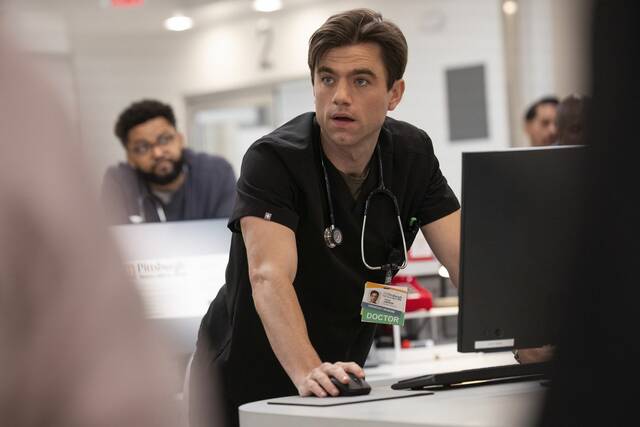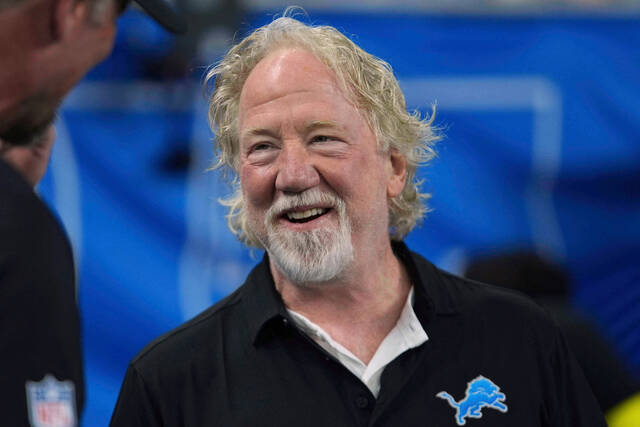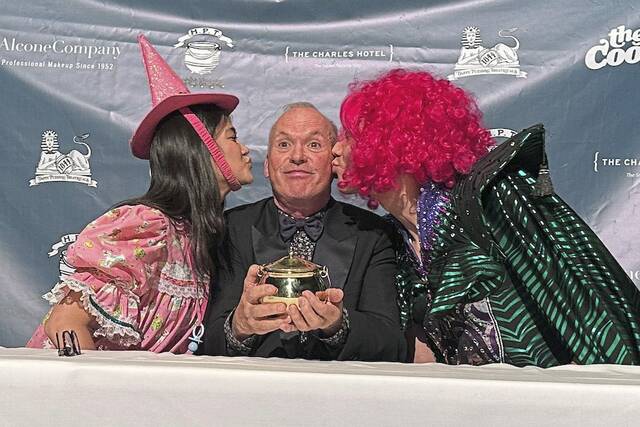Trib Total Media TV writer Rob Owen offers a viewing tip for the coming week.
Even before the 2020 killing of George Floyd by Minneapolis police, attempts at criminal justice reform were beginning to take root, including in Philadelphia with the 2017 election of civil rights attorney Larry Krasner as district attorney.
Filmmakers Ted Passon, Yoni Brook and Nicole Salazar spent four years filming Krasner behind the scenes, beginning on the campaign trail. Their efforts culminate in the PBS “Independent Lens” docu-series “Philly D.A.” (9 p.m. Tuesday for the next seven weeks, WQED-TV).
The two-hour premiere chronicles opposition to Krasner by the police union and support from criminal justice reform advocates and the public at large. Krasner won in a landslide, but his first term has not been smooth sailing and he’s up for reelection without the support of Philadelphia Democratic party ward leaders who usually back incumbents of their party.
In February during the PBS portion of the Television Critics Association winter 2021 virtual press tour, Krasner said resistance to his reforms came largely from entrenched people and institutions.
“It has been resistance from some people in the judiciary, some people in the media, some people in politics, some people in probation and parole,” Krasner said. “But I really don’t think we had a problem. If you look nationally, 10% of the population of the United States has elected a progressive prosecutor, including the largest criminal justice jurisdiction in the United States, Los Angeles. Ten years ago, that number would have been about 0%. So, the people are not the problem. The problem here, in my view, is getting the institutions to listen to the people.”
“Philly D.A.” chronicles Krasner’s office, its reform attempts and the stumbles along the way (an early mass firing of prosecutors turned into a PR blunder).
Passon said despite the series’ title, the focus isn’t solely on Krasner and his team.
“You can’t necessarily just be in one office, one place and hearing conversations and one side of things and feel like you’re getting the whole story,” Passon said. “It became important to us pretty early on to widen the scope of the series as much as we could and film with people who were in the police department, film the people who were in city council, city government, film the defense attorneys, people who were incarcerated. We were trying to do our best to create a 360-degree portrait of a city in the midst of a really colossal moment and include as many different perspectives and points of views as possible.”
Krasner said the ideas around the notion of “defunding the police” are central to criminal justice reform even if the phrase mischaracterizes what some reform proponents hope to achieve.
“(It’s) the idea that we should look at where we are spending money and how,” Krasner said. “Are we spending it in the ways that are most effective and do the most to heal society and to prevent crime? I am not here to say I think it is a particularly good phrase, because in the mind of some people, it means defund completely. In the minds of other people, it means reinvest in different ways or engage in a type of policing that is a little bit different.
“But I do think the central notion, that voters whose taxes are used for these purposes are entitled to choose how they are used,” Krasner continued. “They may believe more in public education and prevention. They may believe more in treatment for people with mental illness who are suffering from substance abuse disorder than they believe in having additional boots on the ground. They may be more interested in keeping the blood off the ground initially than focusing on catching it after it happens, after the tragedy occurs. To me, that’s the same notion, perhaps expressed in a different way.”


